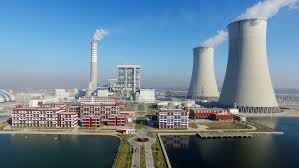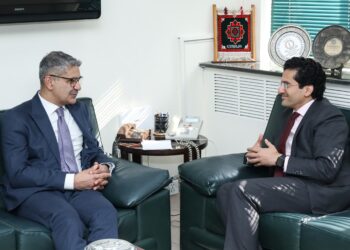ISLAMABAD: The government of Prime Minister Shehbaz Sharif has received a formal notification regarding a claim from the owner of Halmore Power Company. This claim is made pursuant to the Bilateral Investment Treaty (BIT) between Pakistan and the United Kingdom and Northern Ireland, aimed at promoting and protecting investments. The notification is dated November 30, 1994.
This is the second notice from a European country. Earlier, Germany had sent a strongly worded letter concerning the financial interests of M/s Siemens in the Rousch Power Plant.
Mr. Karim-Ud-Din, a British national, is a protected investor under Article 1(c) of the BIT. He has made significant investments in Pakistan, which are protected under Article 1(a) of the BIT. Mr. Karim-Ud-Din is the owner of Halmore Power Generation Company Limited, directly holding 99.9% of its shares. Halmore has successfully operated in Pakistan for the past twenty years and has contributed to the country’s electricity market.
In 2002, Pakistan adopted a new policy for power generation projects aimed at attracting investments to resolve the ongoing electricity shortage. The policy provided various sovereign guarantees, including (i) a guaranteed rate of return on equity and (ii) state payments not only for electricity supplied to the grid but also for available generation capacity (the “take or pay” model).
Halmore’s shareholders, along with other independent power producers (IPPs), were invited to invest in Pakistan’s energy sector under this policy. Halmore was incorporated on March 31, 2005, and received its Generation License on September 4, 2006. Halmore subsequently entered into several agreements with Pakistan and its state entities, benefiting from guarantees provided by the 2002 policy. These included (i) the Power Purchase Agreement with the National Transmission and Despatch Company Limited on April 28, 2007, (ii) the Implementation Agreement with the President of Pakistan on October 23, 2007, and (iii) the guarantee issued by Pakistan on April 30, 2008.
Under these agreements and assurances from Pakistan, Halmore constructed and began operating a 225 MW dual-fuel combined power plant in Sheikhupura, which entered commercial operation on June 25, 2011. The project required substantial investments, totaling nearly $100 million.
According to the notification, despite Pakistan’s commitment to a 30-year period of assurances—lasting at least until June 24, 2041—Pakistan has gradually reneged on its promises to some IPPs, including Halmore. In 2021, Pakistan forced Halmore to accept several concessions, including a reduction of its guaranteed rate of return from 15% to 12%, which caused a financial loss of at least $52 million over the remaining term of the project.
More recently, Pakistan has accelerated its efforts to revise energy sector arrangements forcibly, using coercive tactics to extract concessions from private businesses. The government has threatened to prosecute those who insist on their rights being respected.
The notice further states that Pakistan’s aggressive methods have had damaging consequences: five IPPs have been pressured into terminating their electricity supply contracts with Pakistan, as widely reported. Karim-Ud-Din’s investments in Halmore have similarly been harmed by Pakistan’s actions. He, along with Halmore, has faced relentless coercion to renegotiate the company’s tariff and contractual terms, stripping him of the guarantees that initially encouraged his investment in Pakistan’s electricity market.
On November 11, 2024, Halmore’s CEO was summoned and threatened with detention unless Mr. Karim-Ud-Din—who resides in London—authorized the acceptance of pre-determined terms that could potentially lead to Halmore’s bankruptcy. Although the CEO was eventually released, Pakistan has continued to exert pressure on Mr. Karim-Ud-Din to compromise on his rights, placing Halmore’s future, as well as the security of its personnel, in immediate danger.
The notice also highlights that Pakistan’s actions are not only coercive but discriminatory. While some privately owned IPPs, including Halmore, have been targeted, state-owned energy producers and other IPPs owned by Chinese investors have not faced the same treatment.
“If this dispute cannot be resolved amicably within three months from the date of this written notification, Karim-Ud-Din reserves his right to submit his claim to international arbitration under Article 8(2) of the BIT to ensure that his legal rights are fully protected and enforced. This letter should be considered a formal notice of claim for that purpose.”
Ends















